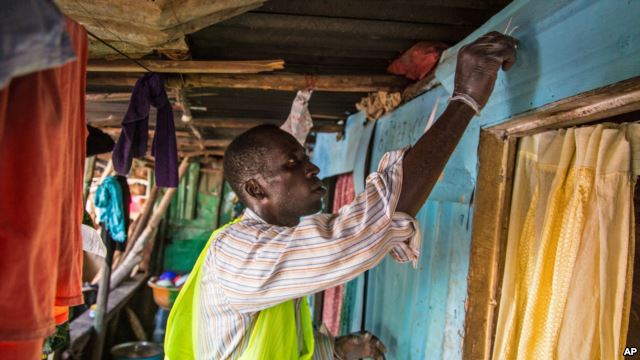Information That Can Save Lives


WASHINGTON, D.C.—Throughout its history, VOA has always delivered the news. For months now, in its coverage of the Ebola crisis, VOA has been delivering news that saves lives.
Prominently displayed on the first page of VOA’s website, for example, is a special section devoted to the Ebola outbreak. It features public service announcements providing basic facts about the disease from President Obama, the first lady of Sierra Leone, Sia Nyama Koroma, and Dr. Anthony Fauci, director of the U.S. National Institute of Allergy and Infectious Diseases.
President Obama, in his announcement, specifically addressed the people of West Africa, where Ebola has struck the hardest. The president explained how the disease is transmitted and the precautions to be taken in caring for loved ones who have it or those who have died from it. “When burying someone who has died from this terrible disease,” the president said, “it’s important to not directly touch their body. You can respect your traditions and honor your loved ones without risking the lives of the living.”
In their video comments, the first lady of Sierra Leone and Dr. Fauci stressed the advantages of early detection and urged people not to stigmatize those who have the disease. These public service announcements are being widely disseminated on VOA’s English-language programming to Africa, as well as on all the VOA language services that broadcast to Africa. Also being widely distributed are guidelines from the Centers for Disease Control and Médecins Sans Frontières about the disease.
VOA’s language services to Africa have also produced their own public service announcements about the disease, voiced by artists, singers, poets and others well known in the target region. Ali Nuhu, one of the most prominent names in Nigeria’s film industry, did an announcement for VOA’s Hausa Service that explained how to recognize Ebola symptoms and where to go for help.
To ensure that people know all they need to know, VOA has also set up an Ebola microsite that provides clear answers to the most-asked questions: What is Ebola? How to avoid getting Ebola? What are the symptoms of Ebola? How is Ebola treated? Another section of the microsite stresses the danger of misinformation, such as the false report of a vaccine for the disease. To reach as many people as possible, the site is designed to work well on mobile phones, including the so-called “feature phone” that is popular in West Africa. And there is no doubt VOA’s Ebola websites are reaching people. So far they have had over 1.5 million visits.
VOA correspondents have also ramped up their coverage from West Africa, with reports from Liberia, Guinea, and other countries where the disease has struck. A special VOA team is in place in Lagos to report on Nigeria’s efforts to contain Ebola. Another team is heading to Atlanta to learn how the Centers for Disease Control is working to find treatments and develop a vaccine.
While VOA works overtime to get the facts about Ebola to affected areas, thousands of U.S. troops and medical personnel prepare to travel to the affected areas and VOA plans extensive coverage of that American humanitarian effort.
“VOA has long been a trusted source of news,” says VOA Director David Ensor, “and in times of crisis, as in Africa now, trust is vitally important. It can save lives.”

